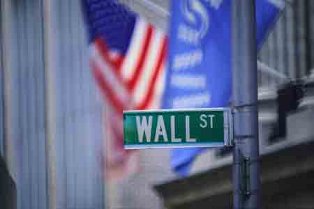A sharp correction in US stock markets is now a “real and rising” threat, warns Nigel Green, CEO of global financial advisory deVere Group.
His warning that a decline of up to 10% could hit this quarter joins a growing chorus of global financial institutions that see the current optimism in US markets as dangerously disconnected from deteriorating fundamentals.
“This market appears confident, but beneath the surface, the risks are accelerating,” says Nigel Green.
“We believe a US correction of as much as 10% is a growing probability. The disconnect between buoyant sentiment and weakening economic signals can only stretch so far.”
Despite Wall Street’s strong performance this year—fueled by a 30% surge in the S&P 500—key macro indicators are pointing in the opposite direction.
He continues: “Inflationary pressures remain persistent, consumer demand is softening, and wage growth is beginning to erode corporate margins.
“Meanwhile, President Trump’s revived trade war is already leaving its mark: businesses are grappling with rising input costs, while consumers are starting to feel the squeeze.”
Trade frictions are feeding directly into prices and margins. That’s slowing consumer spending, weighing on growth, and pushing companies to reconsider hiring plans.
The ripple effects are becoming clear. “This is policy-induced pressure that will take time to work through the system.”
US job growth, long a pillar of the post-pandemic recovery, has shown signs of cooling in recent weeks.
New hiring data reveals a steady uptick in unemployment claims, while wage pressures persist—raising the risk of stagflation if inflation re-accelerates while growth stalls.
Earnings guidance across sectors has also turned cautious as margins tighten and companies brace for softer demand.
“Markets are behaving as though the best-case scenario is guaranteed—continued growth, tame inflation, political stability. But that narrative is fraying,” Nigel Green says.
“Investors who are heavily concentrated in US equities need to start repositioning now.”
The danger isn’t just that a correction is coming; it’s that few investors appear ready for it. Underneath the rally, core indicators are deteriorating.
The latest ISM services index showed its first contraction in more than a year. Consumer confidence is down. Inflation in core goods categories is beginning to edge higher again as tariffs feed through supply chains.
“This rally is being held together by hope and habit. Once sentiment turns, there won’t be time to rethink positioning. That’s why we’re urging serious global diversification now—not later,” adds the deVere chief executive.
deVere is helping clients reduce US overexposure and seek more balanced opportunities abroad—particularly in markets where policy risk is lower and fundamentals are stronger.
Singapore remains a standout. The Straits Times Index has advanced nearly 5% over the past month, supported by stable exports, healthy services demand, and ongoing confidence in the region’s financial hub status. Its inflation remains well-controlled, while business confidence remains robust.
Europe, too, is drawing fresh attention. Germany’s DAX has gained over 3% as industrial output improves and recession fears ease. The FTSE 100 continues to attract yield-seeking capital, while European policymakers adopt a steadier stance amid global volatility.
“The time for global diversification isn’t after the correction. It’s before it,” Nigel Green says.
“Those who wait for confirmation will miss the opportunity to protect gains and capture global upside.”
He insists this isn’t just a risk-mitigation exercise—it’s a strategic realignment.
“We’re identifying opportunity where fundamentals justify it. This means parts of Asia, selective European sectors, and emerging markets with disciplined policy frameworks and long-term demographic support.”
The warning is clear. Inflation may rise again, growth is losing pace, the labor market is softening, and trade tensions are worsening. The illusion of US exceptionalism is vulnerable.
“Should a correction hit, it might be sudden. But the signs are already here for anyone who’s looking,” says Nigel Green. “Global exposure is no longer optional, it’s essential.”


